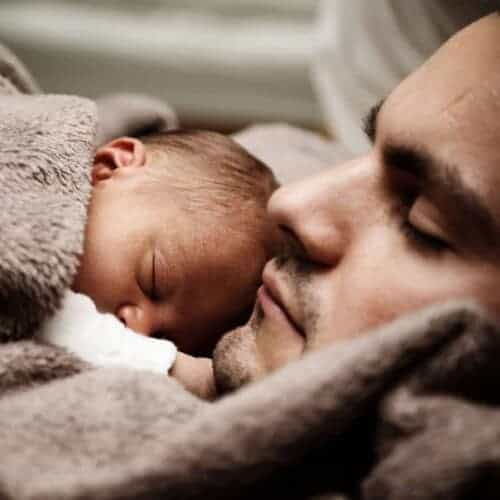0-4 Months: How Babies Learn and Develop

In the first months of life, babies grow and change quickly! Even babies born premature or with medical concerns show an interest in learning and interacting very early.
Newborns may seem sleepy but they are taking it all in. Babies learn as they see, hear and touch the things that surround them.
Babies this age communicate what they need by fussing and crying. Babies are building a strong sense of attachment and safety with the adults that care for them.
How babies this age think, learn and interact
0-4 Months | Bonding and Trust
The trust and bond that babies have with their caregivers is the foundation for learning and well-being!
| Video | Video Title |
|---|---|

|
0-4 Meses | Apego y Confianza |
Source: Colorado Early Learning & Development Guidelines, EarlyLearningCO.org
Loving relationships are the building blocks for healthy development.
Loving relationships make children feel safe, valued and encouraged. Relationships teach young children how to form friendships, understand and communicate their feelings, and overcome challenges.
Through our relationships with them as they grow, we teach children to develop compassion for others and a sense of right and wrong.
Starting at birth, the way that adults treat babies shapes what they learn and understand about themselves.
Every day, when we care for and interact with our children we send them messages such as: You’re smart, you figured that out! You make me laugh and I enjoy being with you. You are loved. These messages shape how a baby feels about herself or her self-esteem.
Tips to support social-emotional development at 0-4 months:
- Provide warm, responsive care. Give your baby the care that matches his needs. This will become easier as you get to know your baby and understand his likes and dislikes, favorite toys and the best daily schedule.
- Support baby’s developing skills. Babies this age learn through relationships and by starting to explore the world around them. Show excitement when your baby explores and discovers.
- Help babies feel safe and loved. When we cuddle, rock, sing, read and talk to our baby, we send her messages that she is special and she is loved. Even when babies cry, it’s important to be affectionate and nurturing. This communicates to them that we love them no matter what.
Source: Zero to Three, https://www.zerotothree.org/resources/series/developing-social-emotional-skills
Many children with developmental delays or behavior concerns are not identified as early as they could be. As a result, these children have to wait to get the help they need to succeed in social and educational settings (in school, at home, and in the community).
It’s important to identify children with developmental delays or behavior concerns as early as possible. Research shows that early intervention and treatment greatly improves healthy development.
| DEVELOPMENTAL MONITORING | DEVELOPMENTAL SCREENING | DEVELOPMENTAL EVALUATION |
| What is it?
Keeping your eyes out for developmental milestones Who does it? Parents, grandparents, other caregivers When does it happen? Birth through 5 years old Why is it important?
How? Get free, simple-to-use checklists here. |
What is it?
Looking for specific developmental milestones Who does it? Pediatrician, early childhood educator, other professional When does it happen? At 9, 18, 24 and 30 months – or whenever there is a concern Why is it important?
How? Professionals use a formal validated screening tool; learn more here. |
What is it?
Identifying and diagnosing developmental delays or conditions Who does it? Pediatrician, child psychologist or trained provider When does it happen? Whenever there is a concern Why is it important?
How? Professionals do a detailed examination using formal assessment tools, observation and conversations with parents and caregivers. |
Source: Centers for Disease Control and Prevention, https://www.cdc.gov/ncbddd/childdevelopment/screening.html
Learn more about developmental screenings and Early Intervention.
Babies 0-4 months old are developing a sense of trust and security with parents and caregivers. They enjoy interacting face to face. Babies will soon know what to expect in their daily routine.
They are likely to be sensitive to loud noises, bright lights or lots of activity.
Try these tips to build a baby’s resiliency skills at 0-4 months:
- Smile at baby, gently hug and snuggle with her
- Respond to baby kindly and warmly every time you interact
- Make eye contact with baby during routines like feeding and diapering
- Talk and coo with baby, imitate his sounds and expressions
- Create routines – stick to a schedule for feeding, sleeping and other activities so baby learns what to expect
- Talk, read and sing to baby every day
- Give baby a break from activity – take her to a quiet place and cuddle and sway with her to help her calm down
Source: Colorado Project LAUNCH, www.EarlyChildhoodMentalHealthCO.org
More Resources
- Get tips to support learning at any age
- Learn more about how to support development during the early years.
- Find out how to support healthy social-emotional development at every age.
- Review a checklist of child development milestones at every age.






